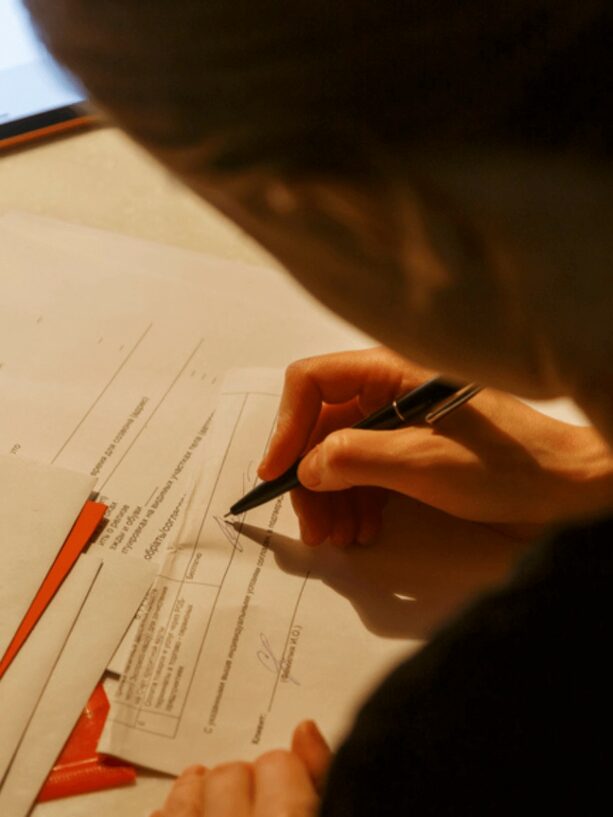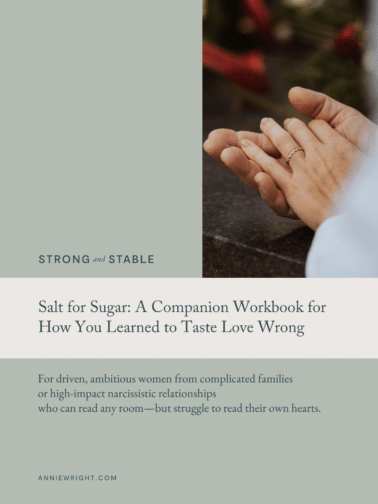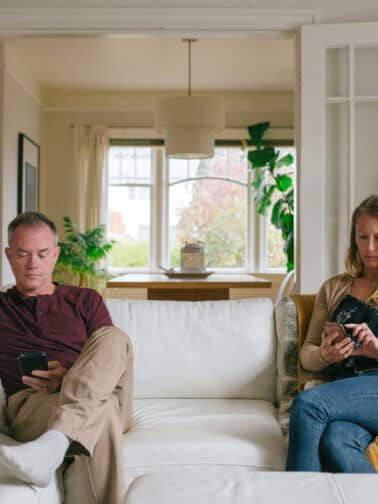TL;DR –For those from relational trauma backgrounds where chaos, financial instability, and emotional neglect defined childhood, the "boring" tasks of responsible adulthood—benefits enrollment, retirement planning, meal prep, medical appointments—become profound acts of healing and self-reparenting. What others might gripe about as mundane adulting represents breaking generational cycles of dysfunction, creating the stability and security that was absent in your formative years. Setting up your daughter's 529 plan when your own parents couldn't maintain health insurance, offering employees benefits when you witnessed employment chaos, brown-bagging lunch to build savings when money disappeared into addiction or crisis—these aren't just tasks but reparative experiences.
The extraordinary lies hidden in the ordinary when each responsible choice contradicts what trauma taught you was possible. Every automated bill payment challenges childhood's financial chaos, every batch-cooked meal counters nutritional neglect, every preventative medical appointment defies the crisis-only care you knew. Far from being drudgery, this consistent adulting is transformational—you're simultaneously being the responsible parent you needed and proving to your nervous system that stability is achievable, that chaos isn't inevitable, that you can create and maintain the secure foundation your childhood lacked.
I’ll never take the mundane for granted.
A week ago was the open enrollment period for benefits at the therapy center I own here in Berkeley.
I sent an email out to my staff letting them know about the week-long enrollment window and also about how I’d expanded benefits this year to include coverage for dependents on our medical, vision, and dental plans.
That same week I spent my lunch break gathering documents for my financial planner to help assess how much long-term disability insurance coverage I need to apply for and how much more per month I can now allocate to my daughter’s 529 plan and to our retirement accounts.
I completed the intake paperwork for my daughter’s new preschool, found new dentists for all of us, and confirmed our benefits with customer service.
It was a week of full-on adulting and, if I’m being honest, there were a few moments when I felt overwhelmed by it all.
Negotiating with benefits brokers, gathering medical and tax records, trying to decipher insurance paperwork legalese…
But even in the midst of the overwhelm, I felt proud of myself and, actually, so grateful for the mundanity of it all.
For me, what might be viewed as mundane is actually a powerful reparative experience given my personal relational trauma background.
In today’s essay, I explain what made this reparative and more about why I’ll never take the mundane for granted.
Why I’ll never take the mundane for granted.
There was nothing “special,” flashy, or exciting about any of the tasks I completed the other week.
There’s also not anything particularly “special,” exciting, or flashy about the sum of my tasks and to-dos on any given day or week.
Load and unload the dishwasher.
Gather the laundry, wash the laundry, fold the laundry.
Batch cook meals in the Instapot and meal prep for the week.
Book medical appointments, refill the vitamin containers, pay the bills, set up socially distanced playdates.
Go to work (which I love), save money to support our long-term planning goals.
Exercise, (mostly) eat healthy, etc.
Again, nothing flashy. Nothing extraordinary.
There are probably a few billion people on the planet who have somewhat similar daily and weekly lists.
There is nothing particularly special – as some might define it – in what I do.
But the mundane, the ordinary, is special for me given where I come from.
I come from a relational trauma background where there was psychological pain and often logistical and financial chaos while growing up.
We didn’t have health insurance (though my mom made sure we had medical care when needed).
There were homemade lunches and some saved money – but that money didn’t go to a down payment or retirement investments or 529’s.
Jobs were worked but no financial security was built.
There was employment, but no business ownership and no job creation for others.
Curious if you come from a relational trauma background?
Take this 5-minute, 25-question quiz to find out — and learn what to do next if you do.
START THE QUIZThere was no working with a financial planner, accountant, and attorneys to lay good, sound legal, and financial futures.
One parent was doing their best, and one parent creating a tornado of psychological, financial, and logistical chaos in their wake no matter who and what they encountered.
In my first eighteen years, the things many of us gripe about as the mundanity of adulting didn’t exist or existed in some tumultuous, porous way.
Now, as a 38-year-old woman who runs her own company that employs 12 W-2 employees, who creates jobs and offers benefits to others, as someone who doesn’t often buy new clothes so I can hit our family’s savings goals, to an outsider, my life might look like a big slog of drudgery and routine.
But for me the mundane is reparative.
The regular routines of life and the ordinary of adulting are reparative because I’m doing for myself and my little family what was not done (or done well) for me.
Each month when the money flows to my 401K and gets debited from my paycheck to build my daughter’s 529, a small part of me wishes there were more sushi dinners in my life.
But a greater part of me deeply respects my discipline, ability to account for, and responsibly take care of my future and my family’s future.
Being a mostly good, responsible, and reliable adult – after the chaos, tumult, insecurity, and abuse of my childhood – is a profoundly reparative experience for my adult self and my child self.
Obviously, I’m not a financial planner and I’d never dare to tell others what to do with their money and household logistics – that’s not the point of this essay.
The point of this essay is, rather, to offer up a reframe.
On what can so often feel like the ordinary drudgery, the everyday mundanity of life.
I want to suggest that – far from being ordinary and mundane – that every day, every week choices are particularly important if you – like me – come from a relational trauma background where adult responsibilities (be it emotional, logistical, or financial) were sorely, detrimentally, lacking.
If you, like I, come from a relational trauma background, I want to invite you to consider that part of your healing, part of overcoming your painful past may not just happen in the therapy room.
It may also happen every time you meal prep nutritious food for you and your family.
It may also happen each time you brown-bag your lunch and sock that money saved into an IRA.
Or it may happen on your lunch break while you nibble your sandwich while on hold with your benefits administrator to get an accurate snapshot of the copay for your child’s upcoming procedure.
It may also happen when you build your earthquake kit, stock the cars with first aid kits, book and attend your regular medical and dental appointments.
In the dozens, hundreds, and thousands of adulting moments where you work to create security, responsibility, stability, and safety for you and those you love, I want to suggest that these moments are anything but mundane.
These moments are reparative and potentially transformational, especially when you come from a background of chaos, neglect, or abuse.
Transforming the Mundane Into Healing Through Stability-Focused Trauma Therapy
When you tell your therapist you felt unexpectedly emotional setting up your first employee benefits plan, describing how this “boring” administrative task felt like a miracle given your chaotic childhood, you’re recognizing how creating a beautiful adulthood for yourself isn’t just about big achievements but about the profound healing found in ordinary stability.
Your trauma-informed therapist understands that for those raised in chaos—financial instability, emotional volatility, logistical dysfunction—the mundane tasks of responsible adulthood aren’t mundane at all but radical acts of cycle-breaking. They recognize that your pride in maintaining health insurance when your family never had coverage, your discipline in retirement savings when money always disappeared into crisis, your consistency in meal planning when food was scarce or chaotic represents massive therapeutic victories.
The therapeutic work involves reframing these “ordinary” achievements as the extraordinary accomplishments they are. Together, you explore how each mundane task challenges a trauma-based belief: paying bills on time proves the world isn’t always chaotic, maintaining insurance shows you deserve security, saving money demonstrates you can plan for a future. Your therapist helps you recognize that the emotional weight of these tasks—the overwhelm, pride, sometimes grief—reflects their significance in your healing journey.
Through this lens, therapy helps you understand that building external stability is internal work. Every routine you establish sends a message to your nervous system that predictability is possible. Every responsible choice you make reparents the child who learned to expect chaos. The “boring” work of adulting becomes a living meditation on safety, teaching your body what your childhood couldn’t: that stability exists and you’re capable of creating it.
Most importantly, therapy validates that finding the sacred in the mundane isn’t settling for less but recognizing that for trauma survivors, a stable, predictable life isn’t a consolation prize—it’s the ultimate victory over chaos, proof that you’ve become the reliable adult your inner child always needed.
Wrapping up.
Sit with this reframe and try it on the next time you feel overwhelmed, underwhelmed, or bored by the adulting in front of you.
See how embracing this reframe shifts your emotional experience of the task at hand.
See how this strengthens your regard for yourself and who you have become despite where you started.
And please, if you feel so inclined, please leave me a message in the comments below to let me know what “mundane” adulting task has felt reparative and healing to you lately.
Here’s to healing relational trauma and creating thriving lives on solid foundations.
Warmly,
Annie





